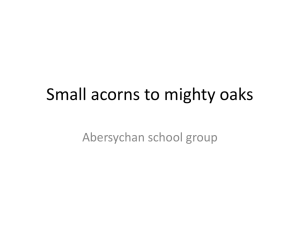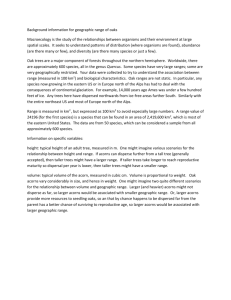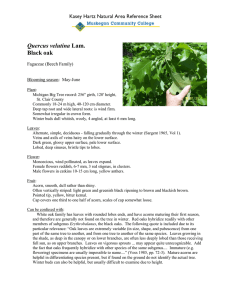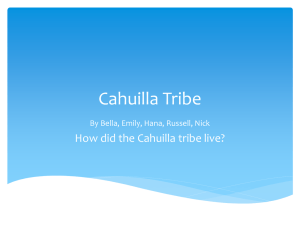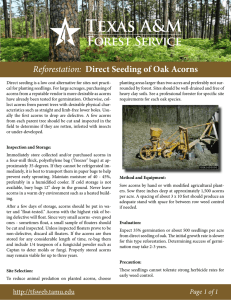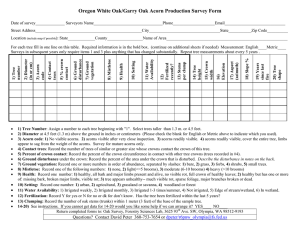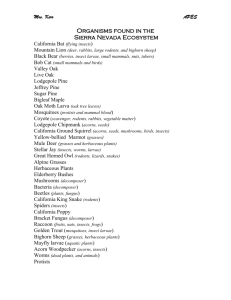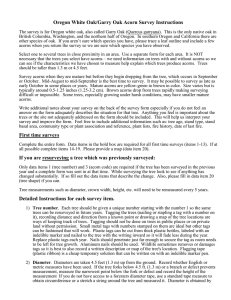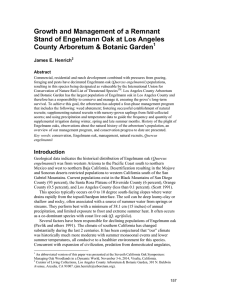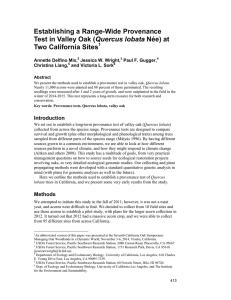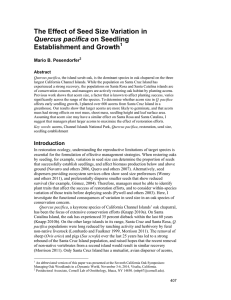Deahne_unitec_work_shop
advertisement
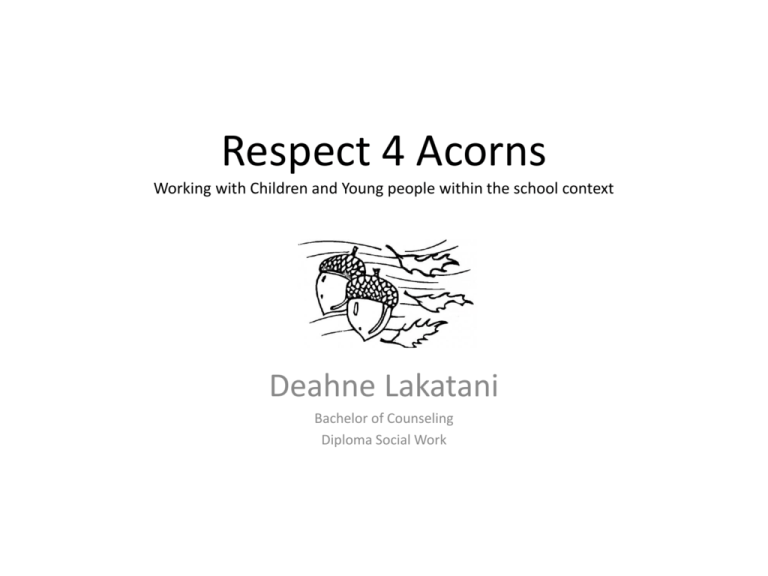
Respect 4 Acorns
Working with Children and Young people within the school context
Deahne Lakatani
Bachelor of Counseling
Diploma Social Work
Respect for Acorns
Definition:
As an adult and a social practitioner its easy to go into practice with
children and young people from that place exactly…..what we know that
they don’t! Acorns are acorns in their own right……to have any hope of
developing a relationship with an acorn that holds importance above and
beyond what we have to teach as wise old oak trees accept that they are
the expert in their own context right at this minute.
My experience working with children and young people in urban schools
has taught me more than any book or class {not that these are not
valuable} but the two that have developed my practice….and me are these
•
•
I don’t know what I don’t know……..just because I'm now in this
position of privilege I must respect that my knowing about their
experience can only come from them and not my predetermined
wisdom
Urban kids especially will laugh you and your
theories/caring/motivations and knowing right out of their world if they
believe you are a big old faker.
The school context is a tough one when working from this perspectivegenerally and independently. The organization of school generally and the
independent school culture.
Teachers Withhold Judgment, Gain Respect
“Isn’t it true that those teachers we learned to respect and grew to love
never saw us as interchangeable faces or inviolate numbers spawned by
testing agencies and nurtured in guidance departments? They never
presumed to predetermine our station in life, never tagged us as
‘promiscuous gum-snapping hairdresser’ or ‘hung-over auto mechanic.’
The best teachers, if they judged us at all, did not look to others for that
judgment. They saw not what we appeared to be but what, in truth, we
were, and more importantly, what kinds of humane beings we might
become.”
Charles F. Greiner. “Humanizing Education: The Possible Dream.” EJ 66.8
(1977): 28–31
School Context
Lets for a minute pull to pieces the context of school
{totally aside from therapy} and the possible
implications on a child and young persons experience
within it?
What?
Where?
How?
Who?
Why?
Note - Loads of these points are similar in many parts of their day to day lives – home, church,
whanau but your place in those is limited – often non existent!
School vs Therapy
I use vs because the 2 are not exactly conducive
The idea of therapy inside a context that is so far removed from even the
most basic narrative practices makes for some challenging thinking but if
there is any place where you can develop your place in practice{and for me my character}
this is it!! When to fight, who to trust, who to support, when to speak, the
value of your “yes” and “no”, who you work for, why you have been called on
and just where do you fit.
So so often the motivation and expectations for this young person ending up
at your door are practical ones {after all school has a very specific purpose} –
attendance, behavior, self care etc. our job is seen as being to fix those
exactly and not the things within the school context that may be contributing.
I have found that most young people accept this kind of bureaucracy without
much thought and that has taught me an invaluable professional
lesson……..there is a huge amount of pride that comes from succeeding when
the expectation is you wont and pride has a therapeutic value nothing and
no-one can mess with
Foundations of My Practice
•
I know the community I work within
•
For me transparency is key – I expect that if I am not transparent
my kids will see straight though me.
•
Think outside the box {cliché but ill explain}
•
Client experience over truth
•
With the exception of immediate safety and well being my book
knowledge and experience is relevant but not directional
•
Judgment on another's place of belonging is natural, not
acknowledging it and being mindful of its impact on my practice
is not ok
•
I ALWAYS …. look at my own assumptions and the agendas of all
parties – ALWAYS easier said than done but so so so important
•
I believe that roses can grow in concrete {thank you Tupac} –
good acorns come from bad oak trees and that even when the
odds are stacked one positive, trusting, respectful, full of endless
belief relationship can be enough.
Note - I once in a group workshop was asked along with everyone else to place myself on
a continuum…. It is the 2nd most valuable experience I have had in developing my own
practice…. lets try it??
Community
I am about as far away from an “inside the room” counselor as you can
get, I believe with every little fibre of my being that what you do outside
the room especially in urban communities is as important as your
therapeutic talents.
Get to know and develop strong working relationships with as many of
the agencies within your community. Take time to visit them especially –
pastors, community constables, canteen ladies etc.
If you don’t live in the community where you work - occasionally shop at
the local supermarket, go to the community concerts, know the youth
events happening, find the initiatives that connect you and your school to
the community in which you exist. Its invaluable to you, your practice
and your knowledge. Our kids have a name for the old people who want
to help but only if its between 9 on Monday and 3 on Friday…… A “drive
in an drive outter”
Community, Urban Schools and the
Box
Jeffery M.R.Anderson writes in {in my opinion} the most factual and concise as
well as inspirational article “Growing Roses in Concrete” about the false
hopes that exist in society that support system failures….the flipside of this
being critical hope– This my most valuable practice development experience
1. It is an amazing read despite it knocking heads with a lot if the restraints
we place on our practice
But
2. It holds in it the most valuable words I have ever absorbed {and it makes
me feel good} “Most importantly an effective teacher is herself a material
resource : an indispensable person who can connect schooling to the real,
material conditions of urban life”
Replace teacher with you
The Box – one of them anyway
We all have a box that is full{usually overflowing} of the
“stuff” we know. I start every new relationship by sitting on
mine and not by expecting that if I have it wide open
everything can be “solved” What is in front of me is more
important than anything I knew already. Lets not pretend that
knowledge is not of value but in our case it is not power. I try
to make sure that it informs my practice but does not navigate
the journey. The unpublished children and young peoples I
have been privileged in knowing have taught me more than
anything I have red and have so enlightened the “book
knowledge” I have. Take time to be sure that one is the
foundation and the other the structure
“My Power is in me not what I think I know and their power is
in them not what they don’t know yet” D.Lakatani
The Value of Truth
If you choose – and I think it is a choice that has to be
made sometime in your ever developing practice – that a
clients experience of relationship with you is of value the
initial truth or not in their words are irrelevant. Young
people have more reasons not to believe in you than they
do too ………. They figure out pretty damn quick weather
their truth out loud is of any benefit to them or
importance to you and the journey there has huge
therapeutic value.
Note - Perception and experience are separate – I try hard to hold this in the forefront of my
thinking. What I think they must feel like, what I believe the affects of the story must be on them
are not always contained in the result of their experience of sharing it with you….sometimes it’s
their experience of sharing and not the story itself
The Danger of Agendas & Assumption
Its easy when working with children and young people {especially} to start working tactically. The
outcome desired by ?,? and ? And how we think they need to be to
1.
Thrive
2.
Survive
3.
Or simply exist
The danger in this thinking is that
– it happens without us always being conscious of it
-it serves nothing but our own egos
Trust is not something that can be planned for – its not a “desired outcome” it comes at its own pace
and only from transparent authenticity.
The Danger of assumption is not assumption itself it is not acknowledging its existence in ourselves or
its power to direct us. One of the beauties of Narrative Practice is its respect for the story of ones
journey – its so easy with acorns to loose sight of the value of that story and the experience they have
sharing it and its importance in the therapeutic journey. The contextual environment of urban schools
has already established with great security the great divide between “us and them" which is only
widened when cultural contexts, care and welfare experiences are added.
Note –The chapters Politics of language making and relational language making {Thank you Jonella} are
much easier to digest after working with young people and while they are really valuable perspectives
they can be challenging because of context, assumption and the great divide
Context Evaluations
Context exploration is less effected by
How much of
you?
How far?
How much is
too much??
What is its
motivation?
What is its purpose?
Unitec Workshop
Hands on Activities
Deahne Lakatani
Bachelor of Counseling
Diploma Social Work
Developing character my own
practice thinking…
Don’t underestimate the power of things that don’t fit into the therapeutic “box”
Although it is more difficult and in my opinion not always necessary to conceptualize
joy, pride, satisfaction etc be sure not to underestimate the power within them. These
feelings especially when witnessed by oak tress acorns trust and admire have
huge…HUGE therapeutic value. I'm lucky, I have had the pleasure of witnessing just
how valuable these are even for young people who live in far less than the “ideal”
context.
Wherever I can I search out opportunities within our community where they can be a
part of something….its not rocket science…there's no great theory or super smart
person behind it just a determination not to change my beliefs that positioned on that
continuum we did earlier
“one positive experience of self can sustain and build the determination of self for
acorns to be more than just the product of an oak tree”
Believe it!!
Note – Everything in my Keepsake Book our kids gave the ok to it being there
Some Talking Tools
• House
• Thinking forward
• Letter Box
• 1 of each
• Just because
Unitec Workshop
Evaluation
Deahne Lakatani
Bachelor of Counseling
Diploma Social Work
Thank you
Deahne Lakatani
Bachelor of Counseling
Diploma Social Work
